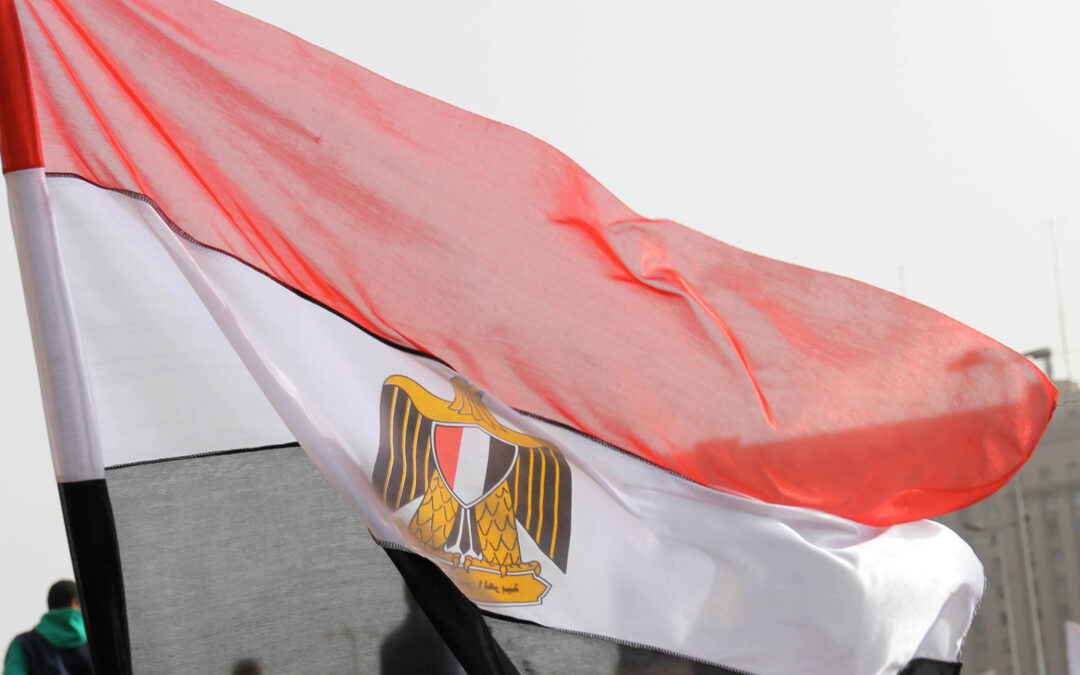
Nov 16, 2018 | News
The South Cairo Criminal Court’s conviction and sentencing on 11 November 2018 of Assistant Detective Mohamed Sayed Abdel Halim and Police Officer Mohamed Ahmed Salem to three years and six months’ imprisonment respectively for conduct involving the torture and killing of 22-year-old Mohamed Abdel-Hakim Mahmoud does not amount to justice for the crimes against him, the ICJ said today.
The ICJ called on prosecutors to consider options for appeal or new charges that could hold the perpetrators properly to account for serious crimes, with sanctions appropriate to the gravity of their conduct and in line with international law.
The two officers apparently unlawfully arrested Mohamed Abdel-Hakim Mahmoud, otherwise known as “Afroto,” on 5 January 2018 and subjected him to severe beatings and other torture, as a result of which he died.
The Court convicted Abdel Halim of “beating that led to death,” a crime that carries a sentence of three to seven years’ imprisonment under Article 236 of the Egyptian Penal Code, and Salem of “light beating.”
“The low sentences imposed by the Court are completely disproportionate to the conduct of the perpetrators, who beat Afroto, threw him into a cell and then beat him again when he complained he was unable to breath. The perpetrators should have been held accountable for their true criminal conduct, which included torture and murder in police custody,” said Kate Vigneswaran, Senior Legal Adviser of the ICJ MENA Programme.
“The Egyptian authorities’ consistent efforts to immunize public officials from real accountability denies the victims and their families their right to redress and reinforces the Egyptian people’s increasing lack of trust in the Egyptian government and judicial system,” she added.
The definition of torture under Article 126 of the Egyptian Penal Code only establishes liability for torture for the purpose of obtaining a “confession” against a suspect, falling far short of the standard required by the Egyptian Constitution and the Convention Against Torture (CAT), which contemplate torture being undertaken for any number of purposes. The Penal Code also imposes penalties—hard labour and the death penalty—inconsistent with human rights, including for torture and murder.
“Egypt should amend the Penal Code to prohibit all forms of torture and abolish the death penalty and hard labour,” said Kate Vigneswaran.
“The authorities are obligated under international law to ensure effective justice for crimes committed by public officials by charging them with crimes and imposing sentences reflecting their criminal conduct. Legislative reform is needed to both ensure accountability for victims and uphold the rights of perpetrators,” she added.
Contact:
Kate Vigneswaran, Senior Legal Adviser, ICJ Middle East and North Africa Programme, m: +31 624894664, e: kate.vigneswaran@icj.org
Egypt-Afroto Verdict-News-2018-ENG (full story with additional information, in PDF)
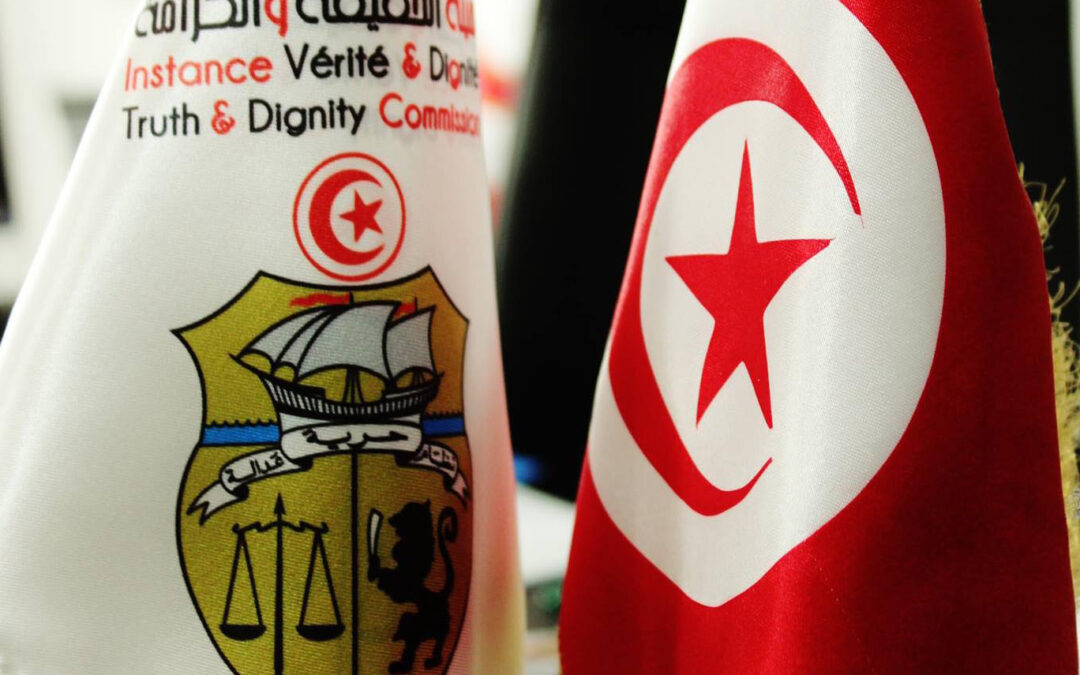
Nov 6, 2018 | Communiqués de presse, Nouvelles
Les organisations de la société civile défendant le processus de justice transitionnelle en Tunisie suivent avec beaucoup de préoccupations et d’inquiétudes l’évolution récente de la situation en ce qui concerne les campagnes réclamant, d’abord, la suspension des travaux de l’Instance Vérité et Dignité et contestant la légalité de son existence et de ses décisions.
Ces campagnes et attaques lancées par certains blocs parlementaires ainsi que par un certain nombre de syndicats des forces de sécurité et de responsables de partis politiques, ont touché les chambres criminelles spécialisées en justice transitionnelle et ses juges, dans le but de nuire aux travaux et à la crédibilité du pouvoir judiciaire auprès de l’opinion publique nationale et internationale.
Lire la totalité de l’article ci-dessous:
Tunisia-Justice transitionnelle-News-Press releases-2018-FRE (version française, PDF)
Tunisia-Justice transitionnelle-News-Press releases-2018-ARA (version arabe, PDF
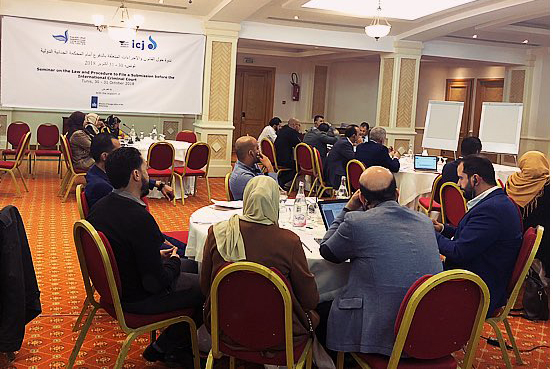
Oct 31, 2018 | News
On 28‒31 October 2018, the ICJ hosted two seminars for 30 judges and prosecutors and 26 lawyers from Libya.
The events were co-organized with the Libyan Network for Legal Aid and commenced with opening remarks by ICJ Commissioner, Justice Kalthoum Kennou of Tunisia.
The first seminar on 28‒29 October on “Fair Trial Guarantees in Libya in light of International Standards” aimed to deepen the understanding of Libyan judges and prosecutors of the application of international law and standards regarding fair trials.
The seminar covered pre-trial rights, such as the right to liberty, to effective legal counsel and to be brought promptly before a judge, and rights at trial, such as the right to defend oneself in person, to call and examine witnesses and to an appeal.
International fair trial standards were considered in light of Libyan domestic law and cases, including case 630/2012 involving 37 Ghaddafi-era officials.
The second seminar on 30‒31 October on “The Law and Procedure to File a Submission before the International Criminal Court” aimed to increase Libyan lawyers’ understanding of how to properly file a successful submission to the Office of the Prosecutor.
The Seminar covered the structure and functioning of the ICC, the jurisdictional and admissibility requirements, and the standards for collection and admissibility of evidence.
The Seminar further discussed the roles of NGOs, lawyers and victims in ICC proceedings, providing practical guidance on how and when to file a communication under Article 15 of the Rome Statute of the ICC.
Speakers included judges and prosecutors from international courts and tribunals as well as ICJ staff.
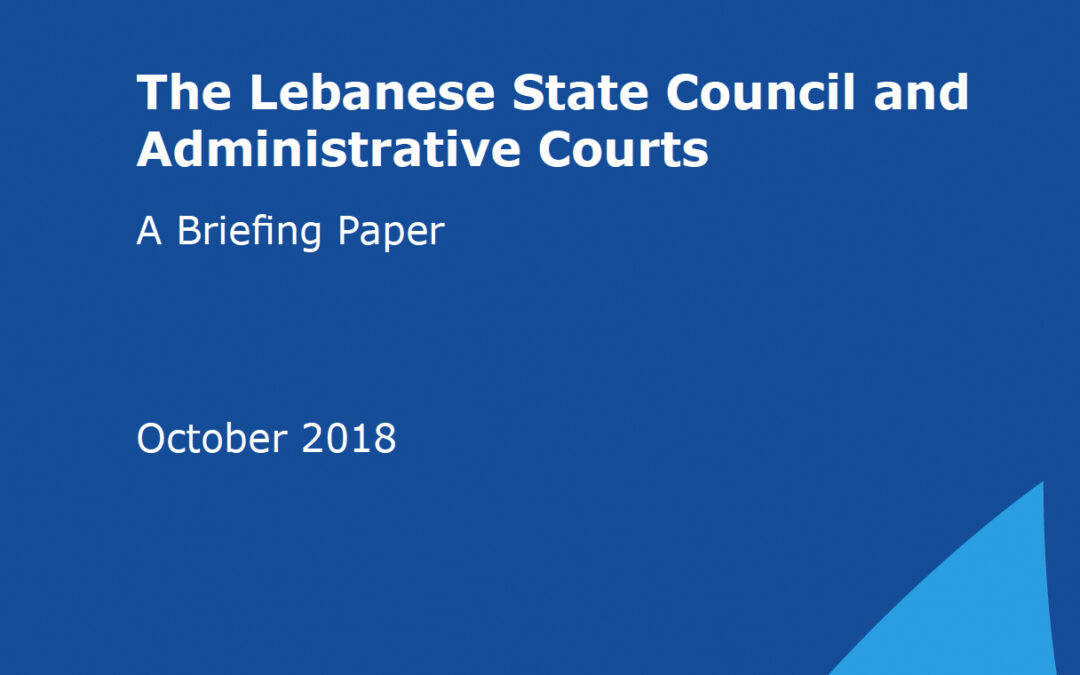
Oct 25, 2018
In a memorandum published today, the ICJ called on the Lebanese authorities to introduce comprehensive reforms to enhance the independence and impartiality of the administrative courts system, in particular by divesting the executive of any role in the selection, appointment and disciplining of administrative judges.
“The Lebanese authorities must set out transparent procedures for the selection and appointment of administrative judges, including in senior judicial positions,” said Said Benarbia, ICJ MENA Director.
“While such appointments should in principle seek to reflect the diversity of the Lebanese society as a whole, including its various religious groups, they must be based on objective criteria, including legal qualifications, skills, experience and integrity,” he added.
The power to take decisions relating to the management of judges’ careers, including promotions, transfers, and disciplinary proceedings, should be exclusively reserved to the State Council Bureau once the framework governing its composition and mandate is reformed.
The Lebanese authorities should ensure that the State Council Bureau is independent and consists of a majority of judges who are elected by their peers from the State Council and, once they are established, from first instance administrative courts.
The membership of the State Council Bureau should also reflect a gender balance.
The Lebanese authorities should also amend the Statute of the State Council with a view to enhancing the individual independence of administrative judges.
“The conditions for the transfer, assignment or secondment of administrative judges should be clearly defined in the law and the entire process must not compromise judges’ individual independence, including through the use of secondment as a reward for judges,” Benarbia said.
The ICJ is also concerned that the disciplinary system does not fully conform to international standards and has the potential to compromise judges’ individual independence.
The Lebanese authorities must rescind the powers of the Ministry of Justice in relation to the disciplinary procedure, including the authority to initiate disciplinary investigations and to refer matters to the Disciplinary Council.
“Disciplinary offences must be clearly and precisely defined within the law and related procedures must guarantee judges’ rights to a fair hearing before an independent and impartial body, including the right to have decisions and sanctions reviewed by a higher judicial body,” Benarbia added.
Contact:
Said Benarbia, Director of ICJ’s Middle East and North Africa Programme, t: +41-22-979-3817; e: said.benarbia(a)icj.org
Lebanon-Memo re Court Reform-Advocacy-Analysis Brief-2018-ENG (Memo in English, PDF)
Lebanon-Memo Courts System launch-New-2018-ARA (Story in Arabic, PDF)
Lebanon-Memo Court Reform-Advocacy-Analysis Brief-2018-ARA (Memo in Arabic, PDF)
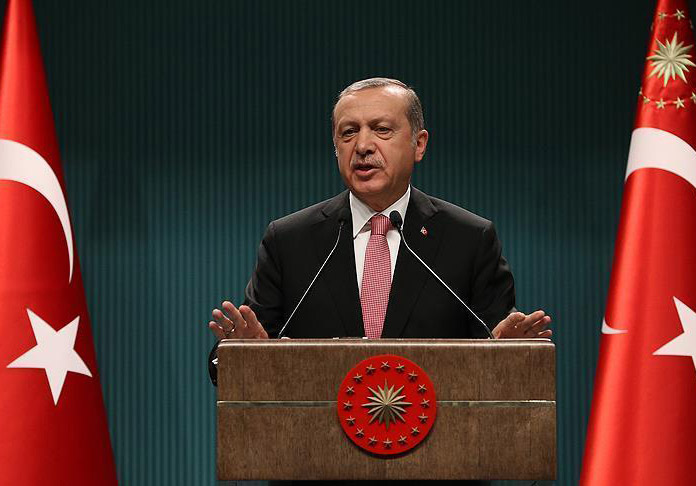
Oct 23, 2018 | News
In light of new information released by Turkish President Recep Tayyip Erdogan about the apparent murder of prominent Saudi journalist Jamal Khashoggi, the Turkish government should seek cooperation from independent and impartial international investigators into the apparent extrajudicial killing of prominent Saudi journalist Jamal Khashoggi in the Saudi Arabian Consulate in Istanbul, the ICJ urged today.
Turkish President Recep Tayyib Erdogan today told the Turkish Parliament that investigations suggested that Saudi officials had planned to kill Khashoggi and he called for all those responsible for the killing to be punished regardless of rank.
“Given the highly political nature of this case and its emblematic impact for journalists and dissidents around the world, Turkey should work with the United Nations to establish a special independent mechanism to carry out the investigation with a view to identifying the perpetrators and prescribing recommendations for appropriate accountability measures,” said Said Benarbia, ICJ’s MENA Programme Director.
“Alternatively, the investigation should be conducted by competent Turkish authorities, given that Turkey already has jurisdiction and an obligation to carry out an investigation,” he added.
Investigations by Turkey to date suggest that the crime was planned, at least in part, in Saudi Arabia, and that perpetrators, evidence and witnesses are located in at least two countries.
Turkish Foreign Minister, Mevlut Cavusoglu, stated today that Turkey is ready to cooperate with an international investigation into Jamal Khashoggi’s death.
“Given the gravity of the crime and the fact that evidence and perpetrators are located outside Turkey, Saudi Arabia and other States should cooperate with an international investigation and waive any diplomatic protections and immunities that may apply to State officials and premises. They should also hand over all forensic, video, audio and other evidence, facilitate investigators’ access to State territory and witnesses, including State officials, and provide the necessary support to locate, retrieve and identify other evidence such as human remains and trace evidence and to carry out an autopsy on Khashoggi’s remains,” Benarbia said.
The ICJ dismissed statements by Saudi Arabia that it would carry out an independent, impartial investigation of the apparent murder.
On 20 October 2018, after initially denying any involvement in Jamal Khashoggi’s enforced disappearance, the Saudi Ministry of Foreign Affairs issued a statement claiming Khashoggi died when a “fight broke out” in discussions with Saudi officials at the consulate.
“Saudi Arabia has provided no evidence to support its incredible claim two weeks on that Jamal Khashoggi died after a fight broke out. Their investigation into his death lacks transparency and independence. Given Saudi Arabia’s past record in countenancing complete impunity for officials involved in serious human rights violations, it is reasonable to expect that this investigation and will result in a cover-up in which those most responsible avoid accountability,” Benarbia added.
Saudi Arabia’s repeated denials that it had any knowledge of the fate of Khashoggi, followed by its claims that “rogue” State operatives were responsible for his death, indicate that any Turkish investigation will be unlikely to elicit any meaningful cooperation from Saudi authorities.
“The denials, obfuscation and scapegoating by Saudi Arabia reveals a contempt for human rights that’s indicative of its modus operandi,” Benarbia said.
“Saudi authorities have repeatedly failed to carry out independent and impartial investigations into allegations that State officials have engaged in widespread arbitrary arrested and detention, torture and other ill-treatment and enforced disappearances, including of journalists, human rights defenders and critics of the government. Since Crown Prince Mohammad bin Salman was appointed in June 2017, repression of the exercise of human rights for political reasons has increased. Those convicted for exercising their lawful rights to freedom of expression, assembly and association face lengthy prison terms or the death penalty, after trials marred by fair trial rights violations,” he added.
Saudi Arabia-Khashoggi intl investigation-News-press releases-2018-ENG (full story with additional background, in PDF)









